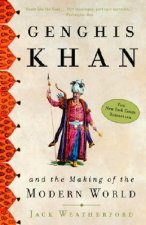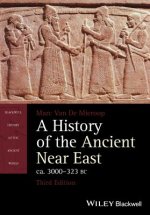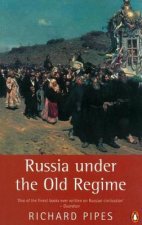
Code: 07182448
Landowners in Colonial Peru
by Keith a Davies
In 1540 a small number of Spaniards founded the city of Arequipa in southwestern Peru. These colonists, later immigrants, and their descendants devoted considerable energy to exploiting the surrounding area. At first, like many ot ... more
- Language:
 English
English - Binding: Paperback
- Number of pages: 248
Publisher: University of Texas Press, 2014
- More about this

You might also like
-

My Magic Fridays 04. Bd.4
7.14 € -9 % -

Poems
36.67 € -

Travels of a Spider
14.20 € -

Autour de l'Id alisme Britannique
70.92 €
Give this book as a present today
- Order book and choose Gift Order.
- We will send you book gift voucher at once. You can give it out to anyone.
- Book will be send to donee, nothing more to care about.
More about Landowners in Colonial Peru
You get 80 loyalty points
 Book synopsis
Book synopsis
In 1540 a small number of Spaniards founded the city of Arequipa in southwestern Peru. These colonists, later immigrants, and their descendants devoted considerable energy to exploiting the surrounding area. At first, like many other Spaniards in the Americas, they relied primarily on Indian producers; by the late 1500s they had acquired land and established small farms and estates. This, the first study to examine the agrarian history of a region in South America from the mid-sixteenth through late-seventeenth century, demonstrates that colonials exploited the countryside as capitalists. They ran their rural enterprises as efficiently as possible, expanded their sources of credit and labor, tapped widespread markets, and lobbied strenuously to influence the royal government. The reasons for such behavior have seldom been explored beyond the colonists' evident need to sustain themselves and their dependents. Arequipa's case suggests another fundamental cause of capitalist behavior in colonial South America: rural wealth was inextricably tied to the colonists' desire to reinforce and improve their stature. Arequipa's Spanish families of the upper and middle social levels consistently employed land and its proceeds to attract prominent spouses, to acquire prestigious political and military posts, and to enhance their standing by becoming benefactors of the Church. They rarely lost sight of the crucial role that wealth played in their lives. Thus, when the region's economy flourished, as it did during the late 1500s, they expanded and improved their holdings. When it faltered at the beginning of the next century, they made every effort to retain properties, even fragmenting land to accommodate family members and new spouses. Unlike patterns sometimes suggested for Spanish America, many Arequipan colonial families possessed land and retained it over many generations. Neither the increasingly rich Church nor a few powerful persons managed to build up extensive estates. Landowners in Colonial Peru explains how and why rural property became so important. It emphasizes both the capitalist bent of Hispanics and the manner in which wealth served social aspirations. The approach makes clear that many of the economic and social characteristics so often attributed to eighteenth- and nineteenth-century Latin Americans were present from the early Colonial period.
 Book details
Book details
Book category Books in English Humanities History Regional & national history
31.83 €
- Full title: Landowners in Colonial Peru
- Author: Keith a Davies
- Language:
 English
English - Binding: Paperback
- Number of pages: 248
- EAN: 9780292766211
- ISBN: 9780292766211
- ID: 07182448
- Publisher: University of Texas Press
- Weight: 771 g
- Dimensions: 229 × 152 × 15 mm
- Date of publishing: 29. May 2014
Trending among others
-

Strange Death of Europe
15.20 € -22 % -

Genghis Khan
19.54 € -7 % -

Secret History
11.27 € -28 % -

History of the Ancient Near East ca. 3000 - 323 BC 3e
55.51 € -

Penguin Historical Atlas of Ancient Egypt
18.23 € -20 % -

God's Playground A History of Poland
67.30 € -

City of Fortune
14.30 € -22 % -

The Great Depression: A Diary
17.92 € -14 % -

Gulag
15.30 € -27 % -

Native American History
20.75 € -13 % -

Pocket History of Ireland
7.45 € -26 % -

Hangman's Diary
12.08 € -25 % -

Badges and Uniforms of the Royal Air Force
17.32 € -18 % -

Shah of Shahs
10.27 € -28 % -

To Hell and Back
16.61 € -22 % -

Complete Pompeii
30.82 € -23 % -

Olympic, Titanic, Britannic
28.10 € -19 % -

With the Old Breed
15.71 € -25 % -

Constantinople
15.10 € -18 % -

Welsh Castles
33.64 € -19 % -

Penguin Historical Atlas of Ancient Greece
20.14 € -28 % -

World of Saint Patrick
33.04 € -7 % -

Venetians in Constantinople
36.36 € -

Few
10.57 € -18 % -

Ninja, The Secret History of Ninjutsu
15.10 € -16 % -

Penguin Historical Atlas of Ancient Rome
17.32 € -18 % -

Annals & The Histories
17.72 € -19 % -

Century of Palestinian Rejectionism and Jew Hatred
9.36 € -16 % -

British Isles
21.35 € -17 % -

Russia and the Russians
19.44 € -27 % -

English Castles
29.21 € -19 % -

Civilization of Europe in the Renaissance
17.32 € -13 % -

US HISTORY
11.88 € -1 % -

Earth is Weeping
15.20 € -28 % -

French Army 1870-71 Franco-Prussian War (2)
16.61 € -10 % -

Russia Under the Old Regime
13.29 € -28 % -

Decline and Fall of the Roman Empire: Vols 1-3
60.14 € -28 % -

Amazons
12.79 € -18 % -

Midnight at the Pera Palace
16.61 € -17 % -

1812
20.14 € -28 % -

Empire of the Steppes
65.18 € -

German Order of Battle
22.56 € -

The Fourth Turning
20.65 € -6 % -

Ethnic Cleansing of Palestine
12.89 € -25 % -

Beyond Band of Brothers
15.20 € -28 % -

Bushido, the Soul of Japan
14 € -

Ten Myths About Israel
13.49 € -35 % -

How to be a Victorian
13.29 € -28 % -

Easy Company Soldier
15.61 € -25 %
Collection points Bratislava a 2642 dalších
Copyright ©2008-24 najlacnejsie-knihy.sk All rights reservedPrivacyCookies



 15549 collection points
15549 collection points Delivery 2.99 €
Delivery 2.99 € 02/210 210 99 (8-15.30h)
02/210 210 99 (8-15.30h)